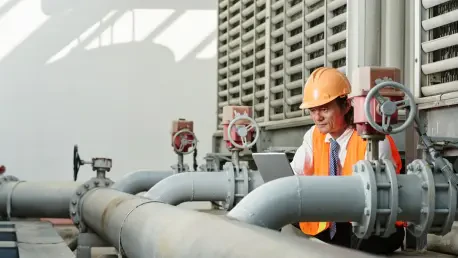Germany’s recent decision to ease its gas supply alert reflects a triumphant maneuver in its energy strategy, emerging from the shadow of past vulnerabilities. This move underscores a transformative shift toward energy stability, achieved through smart diversification efforts and an astute response to geopolitical disruptions. As global energy markets continue to fluctuate, Germany’s journey provides valuable insights for those seeking to understand how strategic partnerships and technological innovation can mitigate energy risks.
Contextualizing Germany’s Energy Evolution
Over the last several years, dramatic shifts in the geopolitical arena have prompted Germany to re-evaluate its energy dependencies, particularly its reliance on Russian gas imports. Originally, this dependency was profoundly challenged by the geopolitical unrest caused by Russia’s aggression toward Ukraine. Germany responded with a robust emergency plan focused on reducing this reliance, seeking alternative supply routes, and enhancing the resilience of its energy sector. This decisive action marked a turning point, driving a transition that has culminated in today’s market confidence.
In-Depth Examination of Market Trajectories
Germany’s path to achieving market equilibrium has been punctuated by strategic diversification of its gas supplies. These measures involved forging vital energy partnerships with countries such as Qatar, Oman, and Norway. Investments in Liquefied Natural Gas (LNG) terminal infrastructure further bolstered this diversification. Currently, market prices rest around 34 euros per megawatt-hour, largely due to these stabilizing efforts. However, analysts caution that winter storage levels could still pose risks if unexpected environmental or geopolitical challenges arise. Competition from Asian buyers also places pressure on Germany to sustain competitive pricing while ensuring stable supply levels.
Navigating Storage Challenges and Price Stability
While diversification efforts have lessened dependency concerns, winter storage levels remain a focal point for ongoing analysis. Consistently maintaining upwards of 75-80% in storage is necessary to avert crises, especially if external conditions become unfavorable. The complexities involved demand a well-balanced approach—securing energy supplies while controlling costs and avoiding overreliance on emergency measures. Analysts suggest maintaining summer price stability as critical for balancing storage needs and market demands, especially when factoring in global energy competition.
The Complexity of Regional Energy Policies
Germany’s nuanced energy strategy extends beyond its borders, influenced by varying regional approaches and international dynamics. Diverse adoption rates of LNG and discrepancies in storage best practices across Europe and Asia exhibit the intricate tapestry within which Germany’s efforts fit. Misconceptions about seamless transitions to diversified energy sources further complicate the narrative, challenging policymakers to address these multifaceted scenarios with innovative solutions that align with global standards while catering to domestic necessities.
Implications and Strategic Recommendations
In conclusion, Germany’s adept handling of its gas supply challenges offers lessons for other nations grappling with similar issues. The country’s strategic alliances, focus on technological advancements, and adaptability to changing circumstances have solidified its standing within the energy sector. Looking ahead, stakeholders must prioritize sustainable investment pathways, enhance technological development, and refine collaborative frameworks to fortify energy security further. As global and regional dynamics evolve, Germany’s approach may pave the way for broader shifts toward energy independence across Europe and beyond.









